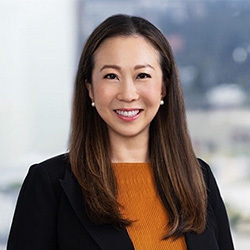The case of Cvejic v. Skyview Capital, LLC, No. B318880 (Cal.App. Jun. 28. 2023), explored the question of whether a party was entitled to withdraw from arbitration if the other party did not pay their arbitration fees on time. According to the California Code of Civil Procedure section 1281.98, the court found that the answer is yes. This case is illustrative of the importance of paying fees on time and not relying on the arbitrator in the case to provide extensions, or expecting the opposing party to simply go along with changing payment deadlines even if approved by the arbitrator.
Relevant Facts
Cvejic was an employee of Skyview Capital, LLC. He was fired from his position and filed a claim. Skyview moved to compel arbitration. The trial court granted the motion and stayed the proceedings. A hearing before a panel of three arbiters was scheduled and Skyview was required to pay its fees by June 4, 2021. On July 7, Cvejic inquired with the case manager as to whether the fees had been paid and found out that they had not. The case manager scheduled a call to discuss the situation. During the call, the case manager set a new due date for the fees of July 14, 2021. Within one hour of the call, Cvejic withdrew from arbitration pursuant to section 1281.98. The panel later stated that the withdrawal was premature as Skyview did pay its fees by the extended deadline of July 14th.
On July 21, 2021 Cvejic brought a section 1281.98 Election to Withdraw from Arbitration motion before the court. He also requested sanctions and a motion to vacate the earlier ruling to stay the court proceedings pending arbitration.
Should the Court Have Allowed Cvejic to Withdraw from Arbitration?
Code of Civil Procedure section 1281.98 was enacted to discourage the abuse of the arbitration process. The statute contemplates the scenario wherein a defendant compels arbitration, but then stalls the case by refusing to pay proper arbitration fees. The Legislature referred to this scenario as "procedural limbo." Gallo v. Wood Ranch USA, Inc. (2022) 81 Cal. App.5th 621, 634.
The statute provides: "In an employment or consumer arbitration that requires, either expressly or through application of the state or federal law or the rules of the arbitration provider, that the drafting party pay certain fees and costs during the pendency of an arbitration proceeding, if the fees and costs required to continue the arbitration proceeding are not paid within 30 days of the due date, the drafting party is in material breach of the arbitration agreement, is in default of the arbitration, and waives its right to compel the employee or consumer to proceed with that arbitration as a result of the material breach. Code Civ. Proc. § 1281.98, subd. (a)(1).
Subdivision (b) of the statute continues and provides employees and consumers with a choice of forum after a breach occurs. It states, "A party may elect to withdraw the claim from arbitration and proceed in a court of appropriate jurisdiction, or to continue the arbitration proceeding should the provider agree to continue." Code Civ. Proc. § 1281.98, subd. (b)(1) & (2).
After the circumstances of the current case were already at issue, the legislature amended the applicable statutes. It added a new subdivision to Code of Civil Procedure section 1281.98, which required arbitrators to submit invoices to all parties that detailed the charges on those requests for payment as well as the due dates and fees. (Stas. 2021, ch. 2022, §3; §1281.98, subd.(a)(2)). The new subdivision also includes the language: "Any extension of time for the due date shall be agreed upon by all parties." The amendment to the law became effective in January, 2022 and did not impact the outcome of this case in any significant manner.
Did Defendant's Late Payment of the Arbitration Fees Constitute a Material Breach of the Agreement?
The clear intent of the statute at issue is to provide recourse for a party who was compelled to participate in arbitration and then finds itself wrapped up in "procedural purgatory" when the opposing party (who forced arbitration to begin with) fails to pay fees by their due date. The statute clearly states that this failure to pay fees in a timely manner is a material breach of the parties' arbitration agreement. Thus, Code of Civil Procedure section 1281.98 clearly entitled Cvejic to withdraw from the arbitration.
The arbitrator's attempt to solve the situation by extending the deadline for payment did not change the fact that Skyview missed the deadline to pay its fees. "If…the drafting party were permitted numerous continuances for failure to pay arbitration fees, therefore delaying the proceedings, C.C.P. section 1281.98 would have no meaning, force, or effect." Leon v. Juanita Foods (2022) 85 Cal.App.5th 740. 749. "Late payment as provided in section 1281.98 constitutes a material breach without regard to any other considerations." Id.
Skyview's argument that Cvejic waived any right to challenge the new deadline because he did not withdraw immediately and therefore acquiesced to an extension to the deadline was without merit. Cvejic did not consent to a breach and was therefore, entitled to withdraw from arbitration pursuant to the teams of the statute.
Does an Arbitrator Have to Rule on Parties' Right to Withdraw From Arbitration Pursuant to Section 1281.98?
Skyview argued that the agreement between the parties required an arbitrator to rule on Cvejic's right to withdraw. It specifically cites language in the arbitration agreement which reads, "Any claim for breach of contract shall be fully, finally and exclusively resolved by binding arbitration."
Contrary to the language contained in the parties' agreement, the court reemphasized that according to the statute the trial court has the absolute right to decide the statutory issue regarding this code section. "The legislature's unambiguous provision for employees and consumers covered by section 1281.98 to unilaterally withdraw from arbitration and proceed in a court of appropriate jurisdiction compels the conclusion that the Legislature intended courts to exercise jurisdiction over such proceedings, as a matter of positive law." Williams v. West Coast Hospitals, Inc. (2022) 86 Cal.App.5th 1054, 1063–1065.
This law originated from the fact that employers and other defendants were avoiding paying arbitration fees to stall cases in the arbitration process. This was contrary to the intent of the law and incentivized the legislature to make nonpayment and late payments grounds for a proceeding in court as well as the possibility of sanctions for the offending party. Leon, supra,84 Cal.App.5th at 750. The legislative purpose behind this provisions was to take this power away from the arbitrators completely and eliminate any potential bias given the fact that they have a financial interest in ensuring that arbitration proceeds.
Therefore, the trial court was correct in deciding the matter and allowing Cvejic to withdraw from arbitration under the circumstances presented in this case. The trial court's order was affirmed.


